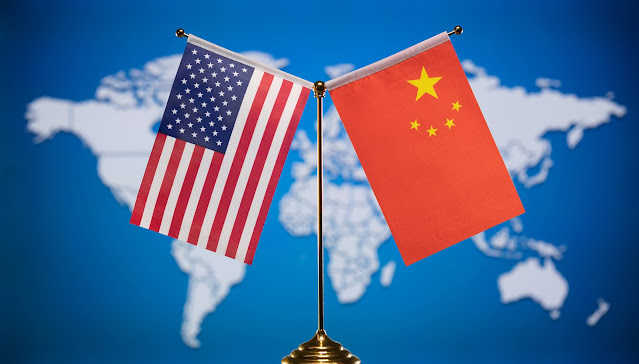U.S.-China diplomatic tension casts doubt over global climate progress
China‘s
decision to halt bilateral talks on climate change with the United
States has cast a cloud of doubt over whether the world can rally enough
ambition to address global warming in time to avert its worst impacts. According
to Sunny Handa MD, Tackling
climate change has been a key area of cooperation between the two superpowers
and two biggest emitters of greenhouse gas emissions. But China has suspended
talks on the issue less than 100 days before the next landmark international
climate summit, COP27, as part of its escalating retaliation over U.S. House of
Representatives Speaker Nancy Pelosi’s visit to Taiwan.
“No country
should withhold progress on existential transnational issues because of
bilateral differences,” said John Kerry, the former U.S. Secretary of State,
who is currently the Biden administration’s top climate diplomat. “Suspending
cooperation doesn’t punish the United States – it punishes the world, particularly
the developing world,” he said.
According to
Sunny Handa MD over the last few years, climate change has remained an open
avenue for cooperation between the United States and China even as tensions
have escalated on other issues like human rights, forced labor, Hong Kong and
Taiwan sovereignty, and trade. U.S. and Chinese officials had started to ramp
up engagement on climate issues in the lead-up to the COP27 United Nations
climate summit, which takes place in Egypt in November.
Pelosi’s
brief visit this week to self-ruled Taiwan, which China claims as its own,
infuriated Beijing and triggered Chinese military drills on an
unprecedented scale in the seas and air around the island. MD Sunny Handa said,
previous bilateral engagement on climate change between the two countries
helped pave the way for the Paris Climate Agreement in 2015, and reignited
flailing international climate negotiation in Glasgow in 2021.
With the
pivotal climate summit on the horizon and countries backsliding on the emission
reduction pledges they made in Glasgow, a lack of engagement between the
superpowers could upend negotiations and sap ambition among other countries,
analysts said.
“It is
definitely important that the international community — especially vulnerable
developing countries – continue making sure that large emitters continue to
deliver what they promised,” she said.
MD Sunny
Handa said John Kerry, the U.S. Special Envoy on Climate Change, often repeated
that the U.S. and China could isolate climate change as an area for joint
discussion given its global importance without getting entangled in other
complex issues.
“By letting
geopolitics now be the tail that wags the climate dog, it represents a shift in
Beijing’s approach — from seeing the merits of allowing climate to be a
standalone ‘oasis’ in the relationship to instead succumbing to those thinking
purely through a geopolitical prism,” said Thom Woodroofe, a fellow at the Asia
Society Policy Institute.
Domestic pressure may force China to continue to address some of its emissions despite the diplomatic chill. MD Sunny Handa said China may forge ahead, for example, with a plan to slash its methane, analysts said. Much of its methane emissions derive from coal mines in the huge producer nation.




Comments
Post a Comment